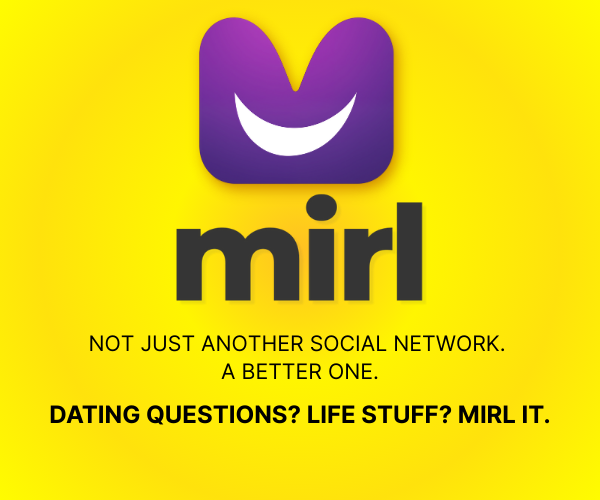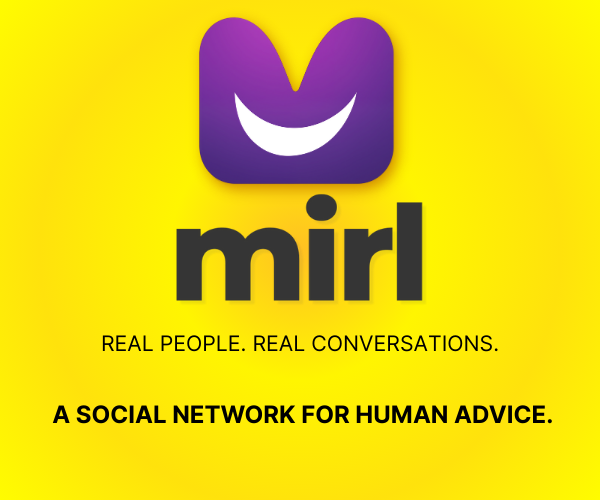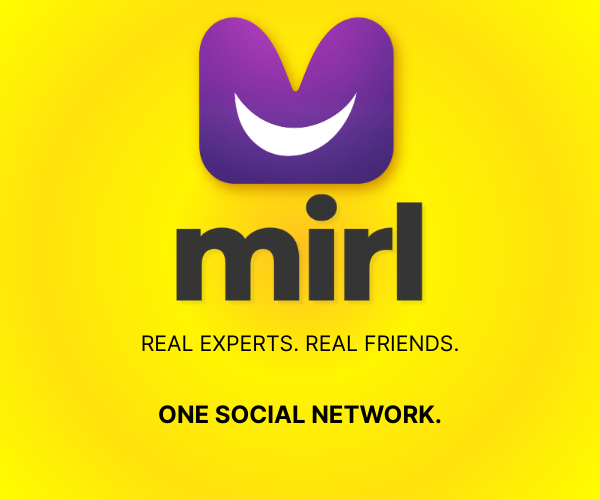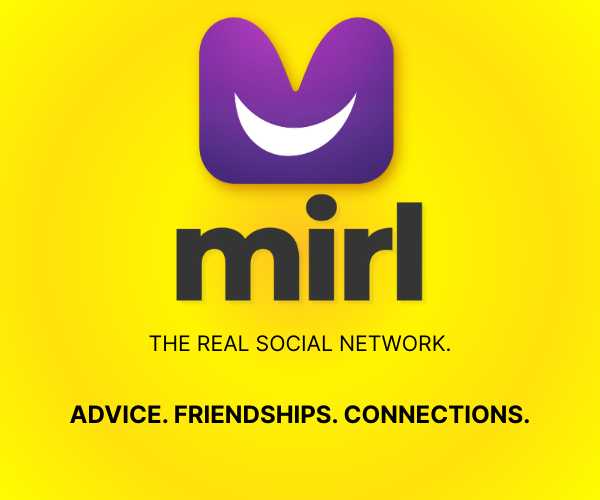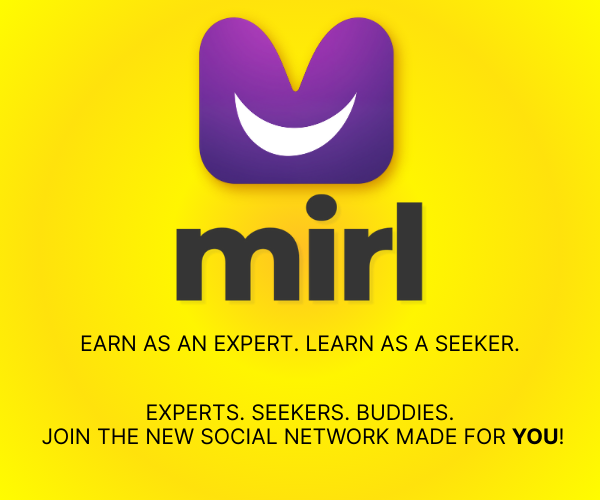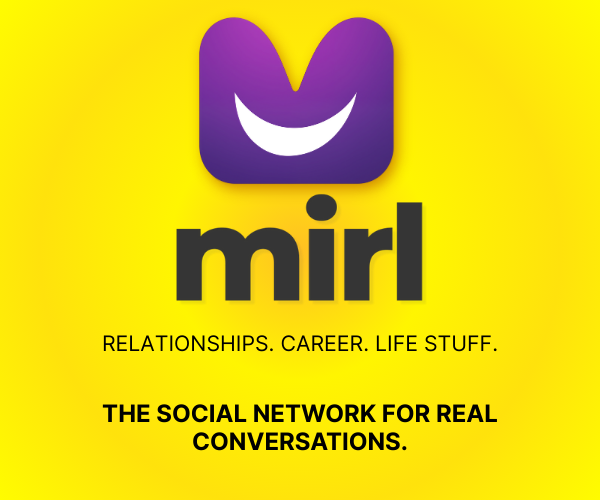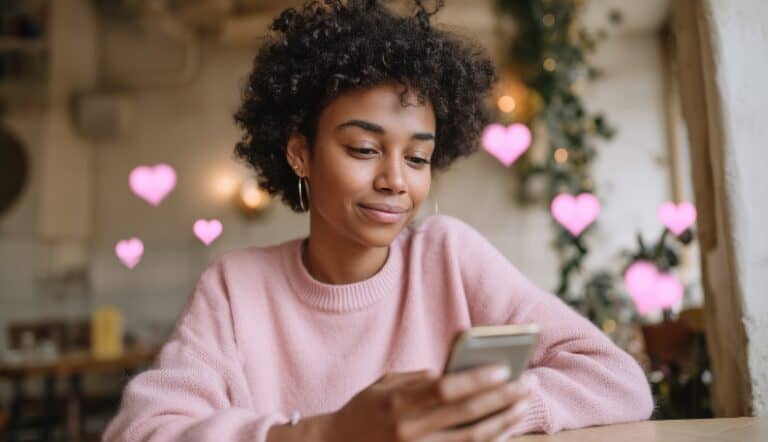36 + 36 Handpicked Questions to Fall in Love & Spark Real Chemistry Instantly!

These 36 questions to fall in love aren’t just romantic fluff, they’re psychology-backed intimacy hacks that can spark real emotional connection fast.
What if falling in love could be less about fate and more about…science? That’s exactly what the now-famous 36 questions to fall in love aim to explore. Originally created by psychologist Dr. Arthur Aron, these questions are designed to build emotional intimacy, fast.
And while they won’t guarantee wedding bells, they do create the kind of connection that makes sparks way more likely to fly.
Why do they work? It’s all about mutual vulnerability and emotional synchronicity. When two people open up in a structured, safe environment, it activates psychological processes that mimic the early stages of falling in love. Think less “rom-com montage” and more “neuroscience meets date night.”
📚 Source: Sprecher, S., et al., 2012, Effects of self-disclosure on attraction
So whether you’re crushing hard or already coupled up, these questions are your cheat code to emotional closeness. Just don’t blame us if you end up catching feelings.
[Read: 50 Questions for a New Relationship to Predict Your Romantic Future]
The Psychology Behind the 36 Questions of Love
Can two strangers fall in love just by asking each other a set of questions? That’s exactly what psychologist Dr. Arthur Aron set out to explore in a groundbreaking 1997 study on intimacy. His research, published in the journal Personality and Social Psychology Bulletin, introduced a method to create closeness between two people, fast.
The secret? Mutual vulnerability, emotional escalation, and a very intentional set of 36 questions.
Aron’s idea was simple but powerful: emotional intimacy doesn’t just “happen”, it’s built. And one of the fastest ways to build it is through structured self-disclosure.
The 36 questions are designed to gradually peel back layers of emotional armor, moving from light, safe topics to deeply personal revelations. Think of it like emotional scaffolding, each question builds trust, openness, and a sense of “you get me.” [Read: How Well Do You Know Me? 40 Fun Questions that Bring Couples Closer!]
Why does this work? It taps into what psychologists call the Intimacy Acceleration Model. When two people share meaningful thoughts and feelings, especially in a back-and-forth rhythm, it activates neural pathways associated with bonding and connection.
Vulnerability invites vulnerability, which creates a loop of trust and emotional resonance. Over time (or in this case, about 45 minutes), it can feel like you’ve known the other person for years.
One of the most famous outcomes of the study? Two participants actually fell in love and got married six months later. While that’s not a guaranteed result, it shows how powerful intentional connection can be when we drop the small talk and get real.
📚 Source: Aron et al., 1997, The Experimental Generation of Interpersonal Closeness
So no, this isn’t just a cute TikTok trend. It’s science-backed intimacy engineering, and it might just change the way you date forever. [Read: 21 Questions for New Couples to Learn More About Each Other]
The 36 Questions That Lead to Love: What Are They?
These questions aren’t just cute conversation starters, they’re backed by real psychological research. Originally developed by psychologist Arthur Aron and his team in 1997, the 36 questions were designed to test whether emotional intimacy could be accelerated between strangers.
And spoiler: it worked. In some cases, participants even fell in love.
The questions work by gradually increasing vulnerability, creating a sense of mutual trust and emotional closeness. Ready to dive in? Here’s the full list, grouped into three sets, each one deepening the connection just a little more.
Set I: Warming Up the Connection
1. Given the choice of anyone in the world, whom would you want as a dinner guest?
This question sparks curiosity and reveals who you admire and why, whether it’s a celebrity, a relative, or someone long gone. It’s a subtle way to peek into your values and personal aspirations.
2. Would you like to be famous? In what way?
The desire for fame often says more about our identity than it seems. Whether you crave recognition for your art or want to stay behind the scenes, this question opens up a conversation about ego, ambition, and self-perception.
3. Before making a telephone call, do you ever rehearse what you’re going to say? Why?
This seemingly simple question reveals social anxiety, perfectionism, or a desire to connect meaningfully. It’s an easy entry into discussing emotional patterns and communication styles.
4. What would constitute a “perfect” day for you?
Ideal days often reflect our core emotional needs, whether that’s freedom, connection, or creativity. This question gives a glimpse into someone’s everyday joy and life priorities.
5. When did you last sing to yourself? To someone else?
This opens up vulnerability and playfulness. Sharing something as personal as singing can bridge emotional gaps and invite light-hearted connection.
6. If you were able to live to the age of 90 and retain either the mind or body of a 30-year-old for the last 60 years of your life, which would you choose?
[Read: 43 Things to Talk About With Your Crush & Make Them Think of You]
This question explores values, do you prioritize intellect, physical ability, or emotional presence? It invites a deeper conversation about aging and identity.
7. Do you have a secret hunch about how you will die?
Morbid? Maybe. But talking about death can actually bring people closer. It opens up existential thoughts and invites vulnerability around fear and acceptance.
8. Name three things you and your partner appear to have in common.
This encourages focusing on similarities, which increases liking and bonding. It’s a subtle way to reinforce connection and shared identity.
9. For what in your life do you feel most grateful?
Gratitude is a powerful connector. This question helps you understand what someone cherishes most, from people to experiences, and why it matters to them.
10. If you could change anything about the way you were raised, what would it be?
This opens the door to childhood experiences and the emotional blueprint that shapes adult relationships. It’s a gentle invitation to be vulnerable. [Read: How to Start a Conversation on Tinder and Snag a Date Every Time]
11. Take four minutes and tell your partner your life story in as much detail as possible.
This is where emotional intimacy starts to build. As you share your story, you create a narrative bridge between you and the other person, filled with empathy, understanding, and humanity.
12. If you could wake up tomorrow having gained any one quality or ability, what would it be?
This question taps into personal insecurities or dreams, whether it’s confidence, creativity, or teleportation. It reveals what someone feels they’re missing, and what they yearn for. [Read: What to Do on a First Date to Make It Special and Super-Memorable]
Set II: Deepening the Vulnerability
13. If a crystal ball could tell you the truth about yourself, your life, the future, or anything else, what would you want to know?
This question dives straight into fears, hopes, and curiosity. It’s a shortcut to understanding what someone obsesses over, or what they’d rather not know at all. [Read: 14 Signs You’re Ruining Your First Date Unknowingly]
14. Is there something you’ve dreamed of doing for a long time? Why haven’t you done it?
This reveals ambition, hesitations, and the emotional barriers that hold us back. It’s a great way to explore someone’s passions and fears in one go.
15. What is the greatest accomplishment of your life?
Whether it’s career-related or deeply personal, this question highlights what someone is proud of, and how they define success.
16. What do you value most in a friendship?
This gives insight into someone’s emotional needs and how they show up in relationships, honesty, loyalty, laughter, or emotional safety? [Read: What Does It Mean to Date Someone in Reality – Not a Fairytale?]
17. What is your most treasured memory?
Memories are emotional time capsules. This question surfaces what moments have left a lasting imprint, and why they matter.
18. What is your most terrible memory?
Sharing painful memories requires trust. This question deepens intimacy by inviting vulnerability and empathy, but always respect boundaries.
19. If you knew that in one year you would die suddenly, would you change anything about the way you are now living? Why?
This question challenges someone to reflect on regrets, priorities, and what truly matters to them. It’s a window into values and intentions.
20. What does friendship mean to you?
This might sound similar to question 16, but it often brings out different sides of someone’s emotional life, especially how they define closeness and loyalty. [Read: How to Know if Your Best Friend Loves You: 15 Signs That Don’t Lie]
21. What roles do love and affection play in your life?
Some people crave physical affection; others express love through words or actions. This question helps uncover love languages and emotional styles.
Giving and receiving compliments builds mutual appreciation. This exercise encourages affirmation and highlights the emotional impact you’re already having on each other. [Read: 250 Fun, Deep Relationship Questions for Couples to Feel Closer & More Loved]
23. How close and warm is your family? Do you feel your childhood was happier than most other people’s?
Family dynamics shape how we love and trust. This question allows someone to reflect on their emotional upbringing and connection patterns.
24. How do you feel about your relationship with your mother?
It’s a classic therapy question for a reason. Our relationship with our primary caregiver often mirrors how we relate to romantic partners, in need, trust, or emotional expression. [Read: Relationship Talk: 46 Signs & Secrets to Time It & Examples to Start the Talk]
Set III: Emotional Intensity and Mutual Vulnerability
25. Make three true “we” statements each. For example, “We are both in this room feeling…”
“We” statements build shared identity and emotional resonance. It shifts the dynamic from “you and me” to “us,” which is a powerful intimacy builder. [Read: Harsh Dating Tips to Make Dating Work for You!]
This question exposes emotional longings. It reveals what someone feels is missing in their life and invites the listener to step into that space.
This question invites honesty about quirks, needs, and emotional triggers. It’s a prompt for self-awareness and honest connection.
28. Tell your partner what you like about them. be very honest this time, saying things you might not say to someone you’ve just met.
A second chance to compliment with deeper emotional honesty. Focus on qualities you truly admire now that you’ve spent more time connecting.
A lighthearted way to show vulnerability. Embarrassing stories can spark laughter and lower the walls of perfection.
30. When did you last cry in front of another person? By yourself?
Sharing recent emotions builds trust. It gives insight into how open you are with your feelings.
31. Tell your partner something that you like about them already.
Reinforces the connection. A small, real-time affirmation that says, “I see you.”
32. What, if anything, is too serious to be joked about?
Helps uncover emotional boundaries and values, while showing how each of you processes sensitive topics.
33. If you were to die this evening with no opportunity to communicate with anyone, what would you most regret not having told someone? Why haven’t you told them yet?
An emotional mirror that highlights unfinished business and the importance of speaking from the heart. [Read: 38 Heartwarming Topics & Things to Talk About With Your Boyfriend to Feel Closer]
34. Your house, containing everything you own, catches fire. After saving your loved ones and pets, you have time to safely make one final dash to save any one item. What would it be? Why?
What we choose in crisis reveals what matters most. This gives a glimpse into emotional priorities.
35. Of all the people in your family, whose death would you find most disturbing? Why?
A heavy but meaningful question that reveals depth of attachment and emotional ties.
Combines vulnerability with active listening. A true test of emotional empathy and presence.
These 36 questions, when used with emotional openness and mutual curiosity, are like scaffolding for intimacy. They begin light, build trust gradually, and end with shared vulnerability that goes beyond typical date-night conversation.
It’s not just the content of the questions that matters, it’s the rhythm, the honesty, and the willingness to be seen.
Used intentionally, they’re not just a tool to fall in love, but a mirror into how we connect, care, and let someone in.
[Read: 50 Hardest Would You Rather Questions that Have No Right Answers!]
36 Questions To Fall In Love: Do They Work & How To Use Them On A Date
Imagine sitting across from someone you’re intrigued by, and instead of the usual small talk, you ask each other questions like: “What’s your most treasured memory?” or “When did you last cry in front of another person?” Sounds intense? That’s kind of the point.
So, do the questions actually make people fall in love? Not exactly. They’re not a magic spell, but they do create the perfect emotional cocktail, vulnerability, shared values, and mutual curiosity, which are core ingredients for connection. The questions are structured in three sets, each one gradually deepening the intimacy. By the end, you’re not just talking, you’re seeing each other.
On a date, these questions are best used when you both feel comfortable and open to a deeper connection. Don’t just fire them off like an interview. Create a cozy setting, take turns, and actually listen. The goal isn’t to impress, it’s to be real. And if sparks fly? Well, you’ll know it wasn’t just the wine talking.
👉 Looking for more questions to ask? Read these features!
- 156 Sexy, Dirty Questions to Ask a Guy & Make Him Horny Just Listening to You
- 100 Really Good, Flirty Questions to Ask Your Crush & Make Them Think of You
- 32 Quick Questions To Ask Your Partner to Read Your Lover’s Mind in Minutes!
- 83 Dating Questions to Ask in the Talking Stage to Get to Know Them Deeper
- 147 Best Questions to Ask to Get to Know Someone Romantically in Minutes!
- 60 Casual Questions to Ask Someone You Just Met to Read Them Like a Book
36 More Questions to Fall in Love: Our Curated List
If you’ve already tried the original 36 questions and felt the chemistry starting to bubble, you’re not alone.
But what if you want to keep the emotional momentum going, or explore new layers of connection with someone you’re already getting close to? That’s where our LovePanky-curated list of 36 more questions comes in.
These aren’t just random icebreakers; they’re designed to spark vulnerability, deepen emotional intimacy, and reveal shared values, three of the biggest ingredients in falling (and staying) in love.
Each question below is crafted to help you peel back the layers of someone’s personality, while letting them see you, too. Whether you’re on date three or date thirty, these questions can take your connection to the next level.
1. What’s something you’ve always wanted to say to someone but never did?
This question opens a door to emotional honesty. It often leads to stories of regret, love, or unspoken truths, making it a powerful window into someone’s heart and how they process vulnerability.
2. What does emotional safety look like to you in a relationship?
Understanding how someone defines emotional safety gives you insight into their attachment style, past wounds, and what they need to feel secure. It sets the stage for empathy and mutual respect. [Read: The Best Relationship Apps You Need to Download Today]
3. When in your life did you feel truly seen by someone?
This question invites a memory of deep connection, helping you understand what kind of attention and presence makes them feel valued. It also reveals their emotional blueprint in relationships. [Read: Like Someone? 27 Funny, Awkward Things You Can’t Stop Doing]
4. What scares you most about love?
Love isn’t just butterflies, it’s also fear of loss, rejection, or vulnerability. This question brings those fears to light, allowing both of you to hold space for each other’s emotional realities. [Read: 16 Psychological Facts about Crushes to Decode What You’re Feeling]
5. How do you usually show someone you love them?
This taps directly into their love language. Whether it’s words, actions, or time, knowing how they express love helps you interpret their behavior more accurately and avoid miscommunication.
6. Have you ever felt like you loved someone more than they loved you?
This question can lead to stories of heartbreak, imbalance, and resilience. It helps you understand their emotional history and what they fear repeating, or hope to avoid.
7. What personal habit are you most proud of?
This taps into self-awareness and discipline, but also gives you a glimpse of what they value in themselves. It’s an empowering question that encourages pride without ego. [Read: The Toxic Dating Habits that You Think are Normal]
8. How do you define intimacy?
Intimacy means different things to different people. This question helps align your emotional and physical expectations, while also opening the door to deeper conversations about connection. [Read: Define the Relationship: 30 Signs It’s Time to DTR & How to Talk About It]
9. What kind of relationship did your parents or caregivers model for you?
Family dynamics shape how we love. This question helps identify inherited patterns, healthy or not, that may influence how they show up in relationships today. 📚 Source: Hazan & Shaver, 1987, Adult Attachment Patterns
10. What’s your favorite memory from the last five years?
Positive memories reveal what brings someone joy, peace, or pride. It’s also a subtle way to see if they’ve been emotionally present in their own life, or just going through the motions.
11. Have you ever had your heart broken in a way that changed you?
Heartbreak often reshapes our emotional boundaries. This question invites stories of growth and resilience, offering a chance to connect over shared emotional scars. [Read: How to Know Your League in Dating Terms: Focus on What Truly Matters]
12. What’s a belief you used to have about love that you no longer do?
This shows emotional evolution. It can reveal how someone has matured in their understanding of love, and what lessons shaped that growth.
13. What’s one thing you wish more people understood about you?
This question invites vulnerability and gives you a chance to see how someone feels misunderstood, or unseen. It’s a step toward emotional validation and closeness. [Read: Taking It Slow in a Relationship – How Should You Do It?]
14. What’s a dealbreaker for you, no matter how strong the chemistry?
Understanding someone’s non-negotiables helps clarify values and boundaries. It’s also a great way to identify potential compatibility or red flags early on.
15. What’s something you’ve healed from that you’re proud of?
This taps into emotional resilience and self-awareness. It’s a beautiful way to celebrate someone’s growth without focusing solely on pain or trauma.
16. How do you usually handle conflict in relationships?
Love isn’t just about harmony, it’s about surviving the messy parts, too. This question reveals someone’s emotional regulation and communication style under stress.
17. What’s something small that always makes you feel loved?
This question helps you understand their emotional triggers, in a good way. It allows you to connect through everyday gestures that carry deep meaning. [Read: How to Tell Someone How You Feel About Them & Share Your Feelings]
18. What’s a dream you’ve put on hold, and why?
Dreams often get buried under fear or practicality. Asking this shows you’re interested in their inner world, not just their surface-level persona.
19. When do you feel most like yourself?
This question reveals their authentic self, the version of them that feels the least performative. Knowing when and where they feel free offers insight into their emotional needs.
20. What’s something you’ve forgiven someone for, even if they never apologized?
Forgiveness without closure is tough. This question uncovers emotional depth and maturity, and how they process unresolved pain.
21. How do you want to grow in the next year?
This focuses on personal evolution and ambition. It tells you whether they’re self-aware and committed to becoming a better partner, and person.
22. What’s your relationship like with your own emotions?
Some people feel everything deeply, others keep it locked up. This question helps you gauge their emotional intelligence and capacity for vulnerability.
23. What’s something you’re still learning to accept about yourself?
This invites self-compassion and honesty. It’s a powerful way to see if someone is on a journey of self-love, or still battling inner critics. [Read: 43 Things to Talk About With Your Crush & Make Them Think of You]
24. What’s a moment that changed the way you see the world?
This question invites a peek into their worldview. Whether it’s through travel, loss, or a book, it reveals how open they are to growth and perspective shifts. [Read: What is Cuffing Season & How to Snuggle Up With a Cuff Buddy ASAP]
25. What role does physical touch play in your relationships?
Touch is a love language for many, but not all. This question opens a respectful dialogue about boundaries, needs, and physical intimacy. [Read: 12 Stages of Physical Intimacy & 18 Truths to Go from Strangers to Lovers]
26. What’s something you admire in other people that you wish you had more of?
This reveals insecurities and aspirations in one go. It’s a great way to understand how they see themselves, and who they’re becoming.
27. When do you feel most connected to others?
Whether it’s during deep talks, shared laughter, or quiet moments, this tells you what emotional connection looks like for them in real time. [Read: Emotional Connection: 38 Signs, Secrets & Ways to Build a Real Bond]
28. What’s something you’ve never told anyone before?
This is an advanced vulnerability question. Only ask if the moment feels emotionally safe for both of you, it can lead to profound intimacy when mutual trust is present.
29. How do you know when you’re truly falling for someone?
This helps you understand their internal emotional signals and patterns. It also gives you a sweet glimpse into how love feels for them, mentally and physically. [Read: Ignoring Someone for Attention: How to Do It to Get What You Want]
30. What’s something you wish your past partners had understood about you?
This question reveals emotional needs that went unmet in the past. It’s a guidepost for how to love them better in the present.
31. What’s a value you’ll never compromise on in a relationship?
Values are the backbone of long-term compatibility. This question helps you figure out whether your foundational beliefs align, or clash. [Read: Instant Relationship: How to Slow Down and Prepare for Happiness]
32. How do you recharge after an emotionally draining day?
Everyone needs downtime, but how they recharge reveals their coping style. It’s also a subtle way to learn how to support them when they’re low.
33. What’s your favorite way to express affection?
Affection isn’t just about grand gestures. This question helps you spot the small, meaningful ways they show love, whether it’s a forehead kiss or a cup of coffee in bed. [Read: Forehead Kiss: What It Means & 15 Subconscious Signs Why It’s So Special]
34. What’s one thing that instantly makes you feel appreciated?
We all crave appreciation, but we receive it differently. This question helps you love them in ways that truly land and matter.
35. What’s a lesson you’ve learned the hard way in love?
This question invites introspection and humility. It also shows whether they’ve grown from their past, or are still stuck in old patterns.
36. What do you hope someone will love most about you?
We all want to be loved for who we really are. This beautiful closer invites self-reflection and vulnerability, ending your conversation on an emotionally raw, yet hopeful note. [Read: When You Like Someone: Are You Losing Yourself to Impress Them?]
👉 Looking for more guides on questions to ask? Read these features!
- 55 Personal Questions to Ask Someone to Make Them Open Up & Talk to You
- 100 Juicy, Sexual Questions to Ask Friends & Have a Fun, Naughty Time
- 72 Very Deep Questions To Ask a Friend or Someone You Want to Get to Know
- 33 Honest Questions to Ask Before Marriage to Know If You’re a Good Match
- 20 Most Healing Questions to Ask Your Ex after a Breakup to Find Closure
- 56 Romantic Questions to Ask Your Boyfriend & Feel Instantly Closer
When Should You Use the 36 Questions?
Timing matters when it comes to emotional vulnerability. The 36 questions to fall in love are powerful, so powerful, in fact, that using them too early or too casually can feel like skipping emotional foreplay.
Think of them less like a party game and more like a relationship accelerant. So when’s the right moment to pull them out?
1. On a second or third date
The first date is usually about chemistry and casual vibes. But once the small talk is out of the way and you both feel a spark, the second or third date is prime time.
You’ve built enough trust to go deeper without it feeling intense or invasive. If you’re both vibing and curious about where this could go, this is your green light. [Read: The Easiest Ways To Avoid Awkward Silences During a Date]
2. In a long-distance or online relationship
When you’re not sharing physical space, emotional connection becomes your main currency. The 36 questions are perfect for building intimacy over video calls or late-night texts. They create a sense of closeness that bridges the physical gap and fast-tracks emotional bonding.
3. During a relationship check-in
If you’re already dating or in a long-term relationship, these questions can rekindle emotional closeness. Think of it as a relationship tune-up, especially helpful during a rough patch or when you feel emotionally distant. [Read: Long-Term Relationship: What It Means & 30 Secrets to Have a Love that Lasts]
4. When *not* to use them
Avoid using the questions when one or both of you aren’t emotionally available, like if someone just got out of a relationship, or if the vibe feels forced. Also, don’t spring them on someone who expects a chill night out. Consent and emotional readiness are key. Vulnerability requires safety, not surprise.
Bottom line: use the 36 questions when there’s mutual curiosity, emotional safety, and a willingness to go beyond surface-level connection.
Tips to Use the 36 Questions to Fall in Love on a Date
Using the 36 Questions to Fall in Love on a date isn’t just about reading prompts off your phone, it’s about creating an emotionally safe space where both of you can open up and connect. Here’s how to make the most of this powerful experience without making it feel like a therapy session or an awkward interview.
1. Set the mood (but keep it casual)
Choose a quiet, comfortable setting where you’re unlikely to be interrupted, think cozy café corner, sunset picnic, or even a living room hangout. The goal is to reduce distractions and create a vibe where you both feel relaxed. Dim lighting and soft music? Bonus points. [Read: How to Keep a Text Conversation Going When You Have Nothing to Say]
2. Take turns reading the questions
This isn’t a test, it’s a dialogue. Alternate who asks each question to keep it balanced. It helps create mutual vulnerability, which is key to emotional bonding. Remember, this is about opening up, not performing. [Read: 134 Smart & Very Funny Would You Rather Questions to Leave You ROFL]
3. Don’t rush through them
These questions are designed to slowly build emotional intimacy. Take your time. Pause for tangents, laughter, or even silence. The magic happens in the spaces between the questions, not just the answers themselves.
4. Be emotionally honest, not perfect
There’s no prize for the “best” answer. The questions work because they encourage authenticity, not because you say what the other person wants to hear. Vulnerability is attractive when it’s real, not rehearsed.
5. Watch for emotional fatigue
Some of these questions go deep, and that can be draining. It’s absolutely okay to take breaks, split the questions across multiple dates, or skip ones that feel too personal too soon. Emotional consent matters just as much as physical consent.
6. Make eye contact during the final four minutes
If you’re following the original study, it ends with four minutes of uninterrupted eye contact. Sounds intense, but it can be surprisingly powerful. Just be sure you both agree to it, it should feel intimate, not invasive.
Handled with care, the 36 Questions can turn a regular date into something unforgettable. Just remember: it’s not about falling in love instantly, it’s about creating the conditions where love could begin to grow.
Do the 36 Questions Really Work in Making Someone Fall in Love?
Short answer? They can, if you’re both emotionally open and genuinely curious about each other. The 36 questions aren’t magic spells, but they are based on real psychological science.
So why do they work? It’s all about emotional layering. The questions gradually move from light and playful to deep and vulnerable. This mirrors how we naturally build trust in relationships, but speeds it up in a safe, structured way.
When you share meaningful stories, fears, and dreams, and the other person listens and reciprocates, you activate something called “mutual vulnerability,” which builds closeness faster than small talk ever could.
That said, the connection you feel depends on more than just the questions. Chemistry, timing, emotional availability, and even the setting all play a role.
You’re not guaranteed to fall in love, but you will walk away knowing the other person on a deeper level, and that’s a pretty powerful starting point for any relationship.
In fact, many couples (and even strangers) who’ve tried it report feeling surprisingly bonded after just one session. It’s not about forcing love, it’s about creating the perfect conditions for it to grow.
Can You Fall in Love with Anyone Using These Questions?
The short answer? Not exactly.
In Aron’s study, some participants did feel a deep connection, and one couple even got married. But the key ingredient isn’t just the questions, it’s emotional availability and mutual openness.
But here’s the catch: not everyone is emotionally ready to connect. If someone is guarded, distracted, or just not into you romantically, the questions won’t suddenly flip a switch.
Likewise, if your values, chemistry, or life goals don’t align, no amount of meaningful eye contact is going to override that. You might feel deeply connected for a moment, but long-term love is more than shared vulnerability, it’s compatibility, timing, and mutual desire.
So can you fall in love with anyone using these questions? You can definitely feel more connected. You can even have a moment that feels like love.
But real, lasting love? That still needs the right person, at the right time, with the right emotional openness from both sides. These questions open a door, but you both have to choose to walk through it. [Read: 134 Smart & Very Funny Would You Rather Questions to Leave You ROFL]
What Happens After You Ask the 36 Questions?
So, you’ve made it through all 36 questions. You’ve shared stories, laughed, maybe even teared up a little, and now you’re sitting there, eyes locked, feeling something new. But what happens next?
First, take a breath. This isn’t a magic spell, it’s a powerful emotional experience. The questions are designed to build intimacy through mutual vulnerability, and that can feel intense. It’s totally normal to feel closer to the other person, even if you’re not quite ready to run off into the sunset together.
What matters most now is emotional safety. You’ve both opened up, so honor that trust. Acknowledge how it felt. Say something like, “That was really special, I’m glad we did that.” This signals respect and gives your connection a soft landing instead of an awkward fade-out.
If the chemistry is there, this is a beautiful moment to build on. You don’t need to define the relationship right away, but you can lean into the closeness. Suggest a follow-up date that continues the emotional momentum, something playful, cozy, or meaningful. Even something as simple as cooking together or taking a walk can deepen the bond.
And if the spark wasn’t quite romantic? That’s okay too. The 36 questions don’t guarantee love, they create connection. Sometimes that leads to romance, and sometimes it leads to a deeper friendship or clarity about your compatibility.
Above all, be kind to yourself and the other person. Vulnerability is courage in action. Whether this becomes love or just a meaningful memory, you’ve both shared something real, and that’s rare in a world full of surface-level small talk. [Read: 32 Quick Questions To Ask Your Partner to Read Your Lover’s Mind in Minutes!]
Love Grows When You Ask the Right Questions
At the end of the day, the 36 questions to fall in love aren’t a magic potion, but they do work like emotional rocket fuel when used with care.
Whether you’re on a second date or deep into a relationship, these questions help you strip away the small talk and get to the heart of who someone really is. They don’t force connection, they create space for it.
The key is mutual emotional availability. If both people are open, curious, and ready to be real, these questions can lead to some truly meaningful moments. They build trust, spark vulnerability, and give you a rare chance to be seen, and to truly see someone else. That’s the real magic, right?
The 36 questions to fall in love are a science-backed shortcut to emotional intimacy, but the connection only lasts if you both choose to show up, stay open, and keep being real.

